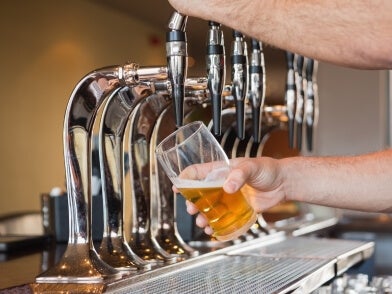How will the pub sector be affected by Budget 2016?
Neil Morgan, managing director of pubs & restaurants at Christie & Co reviews last week’s budget announcement and shares his thoughts on how the pub industry is likely to be affected.
Business. Built around You.
Your expert business property advisers

Amidst cuts, credits and controversy, the Budget 2016 was a bag of mixed emotion and opinion. Now the dust has settled, operators in the pub and bar industry can start to digest the changes and consider how their businesses will be affected so they can be best prepared.
Smaller operators were generally well catered for across the board. The cuts to business rates, due to come into effect on 1st April 2017, will mean that many small businesses will become exempt with the threshold more than doubling for those eligible to pay from £6,000 to £15,000. This will be a significant saving for many independent bar and pub owners and may also help cover the extra cost which comes with the increase in National Living Wage, effective from 1st April 2016. This is a welcome move for many small businesses which were concerned about the rise in staffing costs.
The cut to commercial property stamp duty is also a large boost for smaller operators (and those aspiring to get on the property ladder) in the sector. Specifically, the changes will positively affect those looking to purchase pubs and bars in the lower bands. For example, on a typical pub purchase worth £270,000, the buyer will now save £5,000. This will make both buying and selling a more attractive and viable prospect, as thousands of pounds worth of costs will be saved on numerous transactions.
The anticipated sugar tax is now due to be enforced in 2018. While the full effect on the hospitality industry is yet to be revealed, we may see an impact on costs of wholesale for operators, which will cause prices of some drinks to rise and in turn, may bring down revenues as consumers are reluctant to pay extra.
The freeze in beer and cider duty will of course have a positive impact on both the pub and restaurant sectors for operators and customers. Duty on spirits however will continue to rise with inflation as planned.
Consumers will also benefit from several measures introduced, including tax savings for lower paid workers. Furthermore, the employees benefiting from the increase in National Living Wage are generally millennials, who will most likely opt to spend their higher level of disposable income in social establishments such as pubs and bars. This increase in discretionary spend should give a further boost to the leisure and licensed sectors.
With an increase in consumer confidence and spending, this will provide many opportunities for operators to improve their offerings and expand or exit their business profitably, adding further value and quality to the sector.